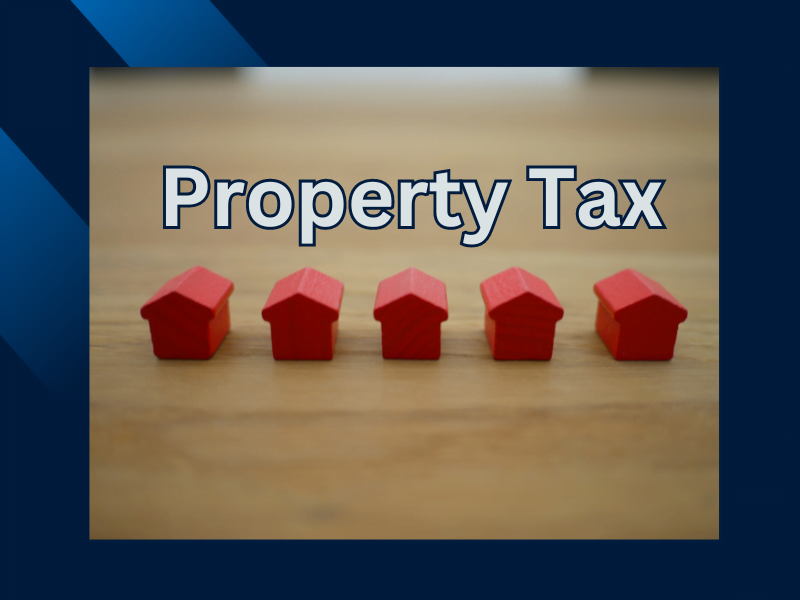Introduction
When it comes to selling a property, there are many financial considerations to take into account. One of the most important things to consider is the payment of unpaid property taxes. Unpaid property taxes can be a significant burden for both the seller and the buyer, and it’s important to understand who is responsible for paying them.

Table of Contents
- Property Tax Not Paid
- Who Is Responsible for Paying Pending Property Taxes?
- What Should the Seller Do With Unpaid Property Tax?
The payment of unpaid property taxes can vary depending on the specific circumstances of the sale. In most cases, the seller is responsible for paying any unpaid property taxes on the property before the sale is finalized. However, there are some instances where the buyer may be responsible for paying the unpaid property taxes.
Unpaid Property Taxes Before the Sale
In many cases, the payment of unpaid property taxes is negotiated as part of the sales agreement. The seller and buyer can agree on who will be responsible for paying any outstanding property taxes as part of the negotiations. This can be an important factor to consider when negotiating the final sale price of the property.
In some cases, the seller may be unable to pay the unpaid property taxes before the sale. This can create a financial burden for the buyer, who may be left with the responsibility of paying the outstanding taxes. In these situations, it’s important for both parties to work together to come up with a fair and equitable solution.
Property Tax Not Paid
When it comes to unpaid property taxes, it’s important to work with a knowledgeable real estate professional who can help navigate the complexities of the situation. A real estate agent or attorney can provide valuable guidance and assistance in understanding who is responsible for paying unpaid property taxes and helping negotiate a fair resolution to the situation.
There are also legal implications to consider when it comes to unpaid property taxes. In some cases, unpaid property taxes can result in a lien on the property, complicating the sale process. It is important to work with legal professionals who can help navigate the legal implications of unpaid property taxes and ensure that the sale is completed in a timely and legal manner.
Who Is Responsible for Paying Pending Property Taxes?
In some cases, payment of unpaid property taxes may be mandated by state or local laws. Knowing the specific laws and regulations in your area is important to understand. Who is responsible for paying outstanding property taxes. Working with a knowledgeable real estate professional can help ensure that all legal requirements are met, and the property sale goes smoothly.
Navigating the complexities of the unpaid property tax payment situation when selling a property and ensuring that the sale is completed fairly and legally. It is important to work with a knowledgeable real estate professional who can provide valuable guidance and assistance.
What Should the Seller Do With Unpaid Property Tax?
If the seller of the property has unpaid property taxes, there are several steps the buyer can take. Let us see that now.
- Check the contract: Review the sales contract or deed to understand the terms agreed upon regarding property tax obligations. This will reveal important details, like any pending property tax arrears.
- Contact the seller of the property: Contact the seller to discuss the unpaid property tax. Inquire about their plans to settle the arrears.
- Consult a lawyer: If communication with the seller fails or there are disagreements regarding unpaid property tax, seek advice from a property lawyer. They can guide the buyer through the next steps and options available to resolve the issue.
- Inform concerned authorities: If the seller refuses to settle the unpaid property tax, inform the local municipal authority.
- Seek legal remedies: Depending on the situation, it may be advisable to file a case in court to resolve the dispute over unpaid property tax. Or legal remedies such as seeking arbitration may be necessary.
In short, dealing with a seller’s unpaid property taxes requires careful consideration and proactive steps to minimize potential legal and financial risks. Buyers should review the sales contract and communicate with the seller. The situation can be managed effectively by taking legal advice if required.
Conclusion
Payment of unpaid property taxes when selling a property can be complicated and challenging. In most cases, the seller is responsible for paying any pending property taxes before the sale is finalized. However, there are some cases where the buyer is responsible for paying unpaid property taxes. For more information, visit openplot.